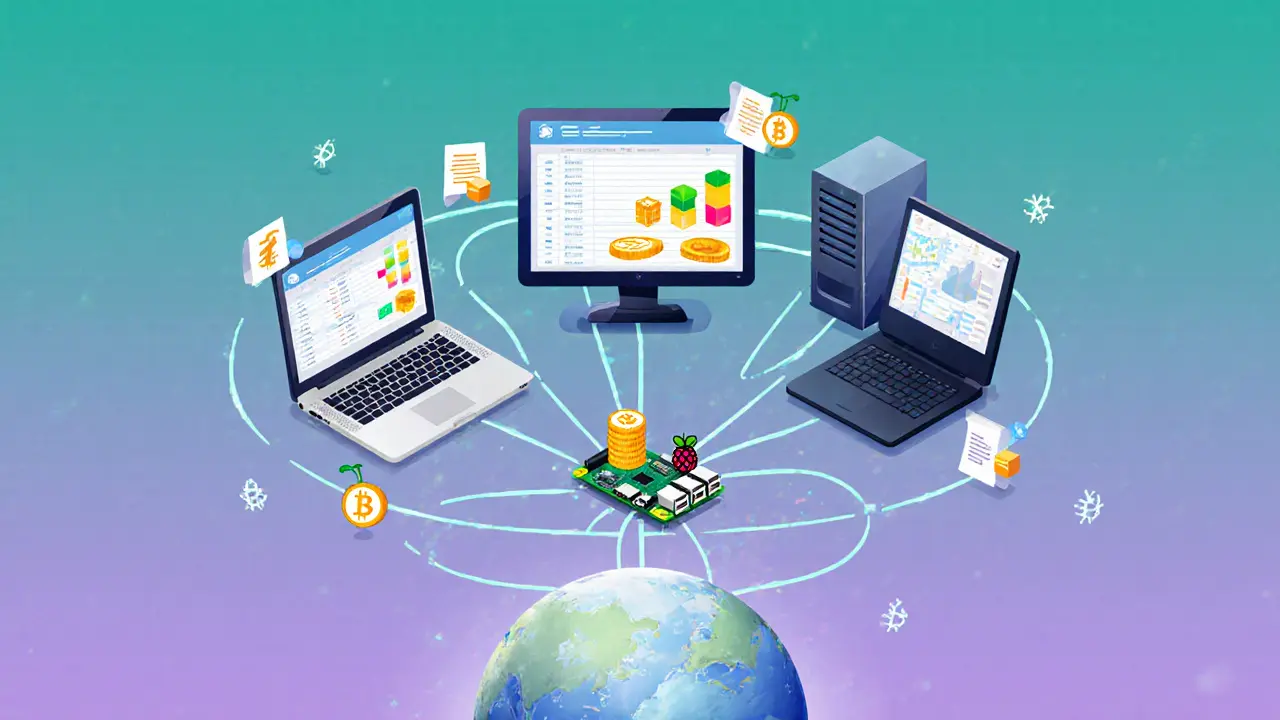Nodes are the backbone of blockchain networks-computers that store, verify, and share transaction data. Learn how full nodes, mining nodes, and lightweight nodes work together to keep blockchains secure and decentralized.
Blockchain Nodes: What They Are and Why They Matter in Crypto
When you send Bitcoin or Ethereum, it doesn’t just vanish into the digital void—it gets verified by blockchain nodes, computers that store, validate, and relay blockchain data to keep the network honest and running. Also known as network participants, these are the backbone of every cryptocurrency without a central authority. Without them, there’s no Bitcoin, no Ethereum, no decentralized future—just empty ledgers and broken promises.
There are different kinds of full nodes, computers that download and verify the entire blockchain history, and light nodes, lightweight clients that rely on full nodes to check transactions. Full nodes are the guardians—they check every rule, every signature, every block. Light nodes are the users—you don’t need to store 500GB of data to send ETH. You just need to trust someone else is doing the heavy lifting. Then there are mining nodes, specialized machines that create new blocks and earn rewards, and staking nodes, computers that lock up crypto to help secure proof-of-stake networks. Each plays a role, but only full nodes truly preserve decentralization.
Why does this matter? Because if everyone ran light nodes, the network would collapse under centralization. One company, one server farm, could control everything. That’s why real crypto users run full nodes—it’s not about profit, it’s about sovereignty. You’ve seen posts here about fake coins like XREATORS (ORT) or dead exchanges like YodeSwap. Those scams thrive when people don’t understand how the system works. Blockchain nodes are the reason those scams don’t take over the whole network. They’re the reason you can check if a transaction is real, even if the exchange you used is gone.
Look at the posts below. You’ll see how nodes connect to smart contracts that automate insurance payouts, how they enable staking rewards on Ethereum, how they underpin the legal frameworks shaping crypto in the U.S. and India. Even the UAE’s move off the FATF greylist relied on nodes enforcing compliance across borders. Nodes aren’t flashy. They don’t trend on Twitter. But without them, none of this works.
